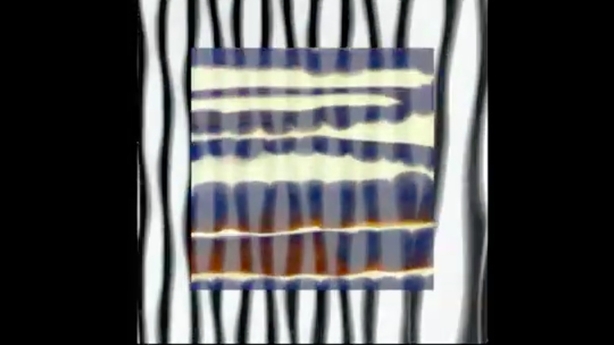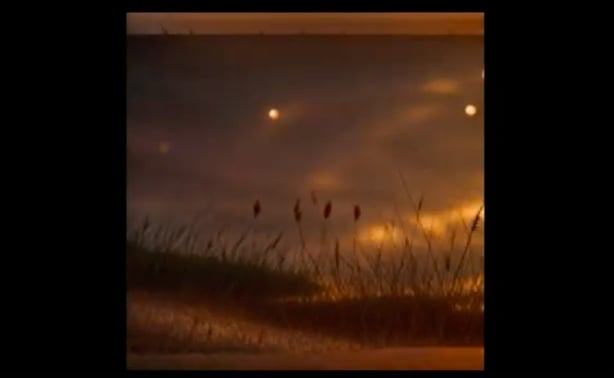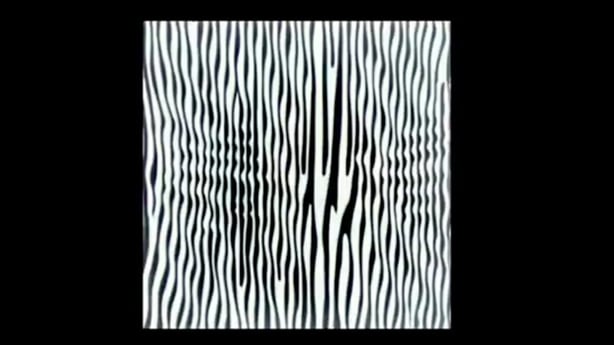Crash Ensemble, a group known for its fearless approach to contemporary music, continues to push boundaries with Postcards, a new project that brings together bold new compositions and innovative multimedia art - watch Postcards above.
With a reputation for exploring fresh sounds and daring ideas, Crash's latest offering is a striking exploration of humanity’s relationship with the environment, weaving together themes of sustainability and climate action.

Postcards consists of a series of three-minute compositions by an eclectic group of creators: Dani Larkin, Emmelle Wadding, Jenn Kirby, Maeve Kelly, Michael Sullivan, Neil O’Connor, and Paul Scully. Each piece explores critical environmental and existential issues, reflecting the urgency of addressing climate change and our impact on the planet.
The music featured in Postcards:
The Last Broadcast by Neil O'Connor (00:27min)
Xchange of Flames by Maeve Kelly (03:35min)
Lighthouse by Dani Larkin (07:13min)
Escape Velocity by Paul Scully (10:33min)
Waves by Jenn Kirby (14:04min)
Through Worlds of Fog by Michael Sullivan (17:12)
Junk by Emmelle Wadding (22:27)
As part of this project, Crash Ensemble commissioned multimedia artist Celsey McFadden to create accompanying visuals. McFadden, a Galway-based composer, producer, guitarist, and multimedia artist, brings a unique artistic perspective to the project, using cutting-edge AI technologies to craft visuals that resonate with the themes of the music.

"It was a great honor to create these visuals for Crash Ensemble's Crash Works creators," says Celsey. Their music, kaleidoscopic and evocative of otherworldly imagery, aligns perfectly with my style.
"I chose to focus on depicting the beauty of nature in all its glory, contrasted with generated abstract shapes and patterns. In my work, I try to find the psychedelic inter-dimensional midpoint between the beauty of the natural world and the infinite possibilities of rapidly developing AI software. I aimed to establish a strong connection between the image and sound, with some visuals synched to the music".
Postcards was commissioned by Crash Ensemble with funding from the Arts Council of Ireland.

Each of the composers have shared a few thoughts on the inspiration behind their works:
The Last Broadcast by Neil O’Connor:
"The Last Broadcast uses morse code for durational / note length for directions. The electronics use acceleration/deceleration of tempo and the increasing/decreasing of density There are many things in the world of electronics that we take for granted. The Cybernetics Norbert Wiener (1894-1964) quoted: Progress imposes not only new possibilities for the future but new restrictions. In the age of the self, the inspiration of the piece and title of the piece refers to the possibility of all communication devices disappearing and a return to the most basic use of tools of communication: the morse code."
Xchange of Flames by Maeve Kelly:
"The discourse around the environment and climate change is complex, charged and polyphonic, and I’m particularly interested in the responses of people to the global warming argument. There are so many different voices in the public sphere to evoke different reactions – the voices of politicians, scientists, activists and conspiracy theorists in our everyday lives summon feelings of urgency, outrage, fear, hope and existential dread. X-change of Flames explores this phenomenon in the online sphere, specifically on the platform X (formerly known as twitter)."
Lighthouse by Dani Larkin:
"A stark conversation between two strangers at a bus stop inspired the idea of sending a postcard to past, present and future ideas of the self. 'Lighthouse’ moves beyond the linear notion of time. It asks us to reflect on our relationships with the people around us, known or unknown. To move beyond a reality of strangers to one that recognises our shared humanity."
Escape Velocity by Paul Scully:
"Escape Velocity is an audio/visual work that explores ideas from the philosophy of ecology. In particular the inescapable irony that we as humans are causing climate change, the thing that will ultimately lead to our extinction. There is no escape velocity from this irony. The piece was conceived to be performed in total darkness, with lights illuminating the string players and snare drum, in sync with the sound. Much of the piece is silent, which means that much of the live experience is in total darkness."
Waves by Jenn Kirby:
"I am fascinated with movement and I was thinking about how the movement of bowing is like the movement of waves. The collision and separation of waves like the ensemble as one instrument, then diffusing into separate voices. A video score guides the performers as they follow lines symbolising different temperaments of waves, from dissolving sea foam to the dense and relentless crashing against the cliffs. I'm interested in how we embody that movement."
Through Worlds of Fog by Michael Sullivan:
"This piece is inspired by the concept of decay, drawing on the physical degradation of various materials and the anxiety over how a person’s beliefs and ideals can become compromised over time. This is reflected by the flute and cello mimicking the harmonic spectrum of the struck frying pans, with different frequencies fading at different rates. As the composition progresses, distortions gradually emerge, created by physically retracing earlier sections of the score and allowing natural changes to take shape."
Junk by Emmelle Wadding:
"Junk follows the journey of a discarded object flowing through our waterways as it is intermittently thwarted with aggressive deviations, growing ever more problematic as the damaging effects unfold. The duality of inspiration between AVAVAV’s 2023 fall/winter fashion show and Curtis Hylon’s ‘Litter Bird’ mural lends to elements of chaos, being trapped, and altering our actions to compensate. The piece is written as a message to witnesses to remember the consequences their actions can have. We are all aware of the devastating effects of waste and pollution, but too often in our daily lives and the comfort of our own conveniences we can become blindsight to the impact our actions are having on the world and its natural inhabitants."
